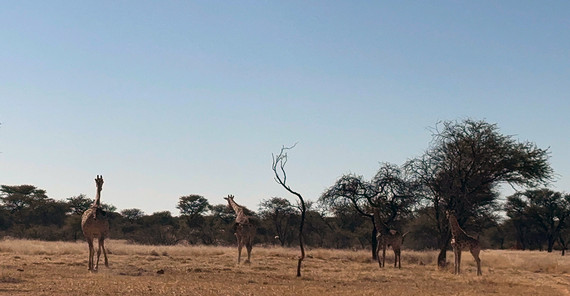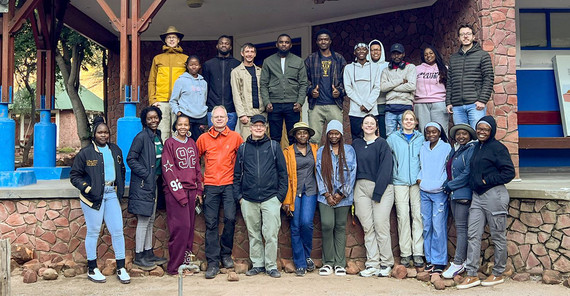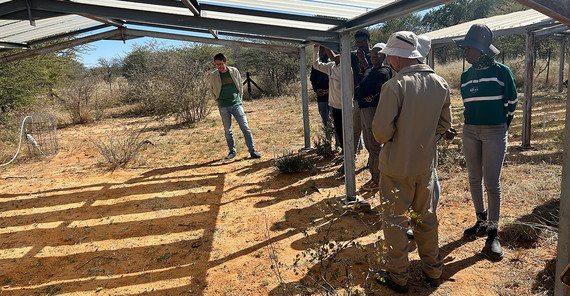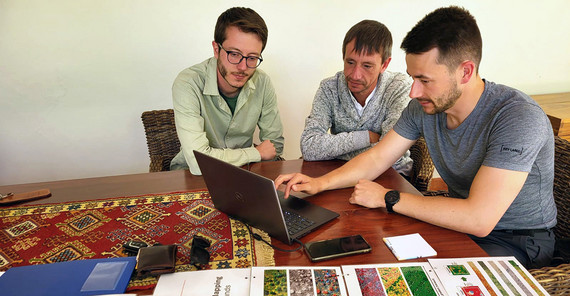Each site hosts a combination of drought and grazing intensity treatments. Passive rainout shelters reduce precipitation by 66%, simulating an extreme drought event that aligns with a drought occuring once every hundred years. Additionally, three grazing intensities are simulated: light grazing (one grass clipping per year), moderate grazing (two clippings per year), and heavy grazing (four clippings per year). All combinations of drought and grazing treatments are applied at both sites.
Dr. Mark Bilton guides us through the experiment, pointing out annual grasses, which serve as indicators of healthy rangeland, and emphasizing the importance of buffer zones in the experimental setup. He gives us deeper insights into the experimental design and its objectives, the main one being to push the system beyond a tipping point to observe whether and how it recovers.
Looking at the different plots, the impact of reduced rainfall becomes especially visible when combined with heavy grazing pressure. In these areas, the ground is bare and nearly devoid of vegetation. Dr. Bilton further explains that for a true tipping point to be confirmed, the ecosystem must remain in a degraded state even long after the treatments have ended.
When we compare the two sites, the differences are not immediately obvious. However, a closer look at the grasses reveals a stark contrast. Near the waterhole, indicators of healthy rangeland are nearly absent suggesting long-term degradation due to livestock pressure.
Before leaving the site, Dr. Mark Bilton shares a few final words of thanks with the participants. He tells us that we have been a wonderful audience, and that seeing such motivated and genuinely curious young people has renewed his own enthusiasm for research.
Then it is time to say goodbye to the students who will return to Windhoek, while our way takes us back to Okakarara, where the final project stakeholder workshop will take place on Monday. But before that, we still have some preparations to be completed.
Link to NamTip website: https://www.uni-potsdam.de/en/namtip




